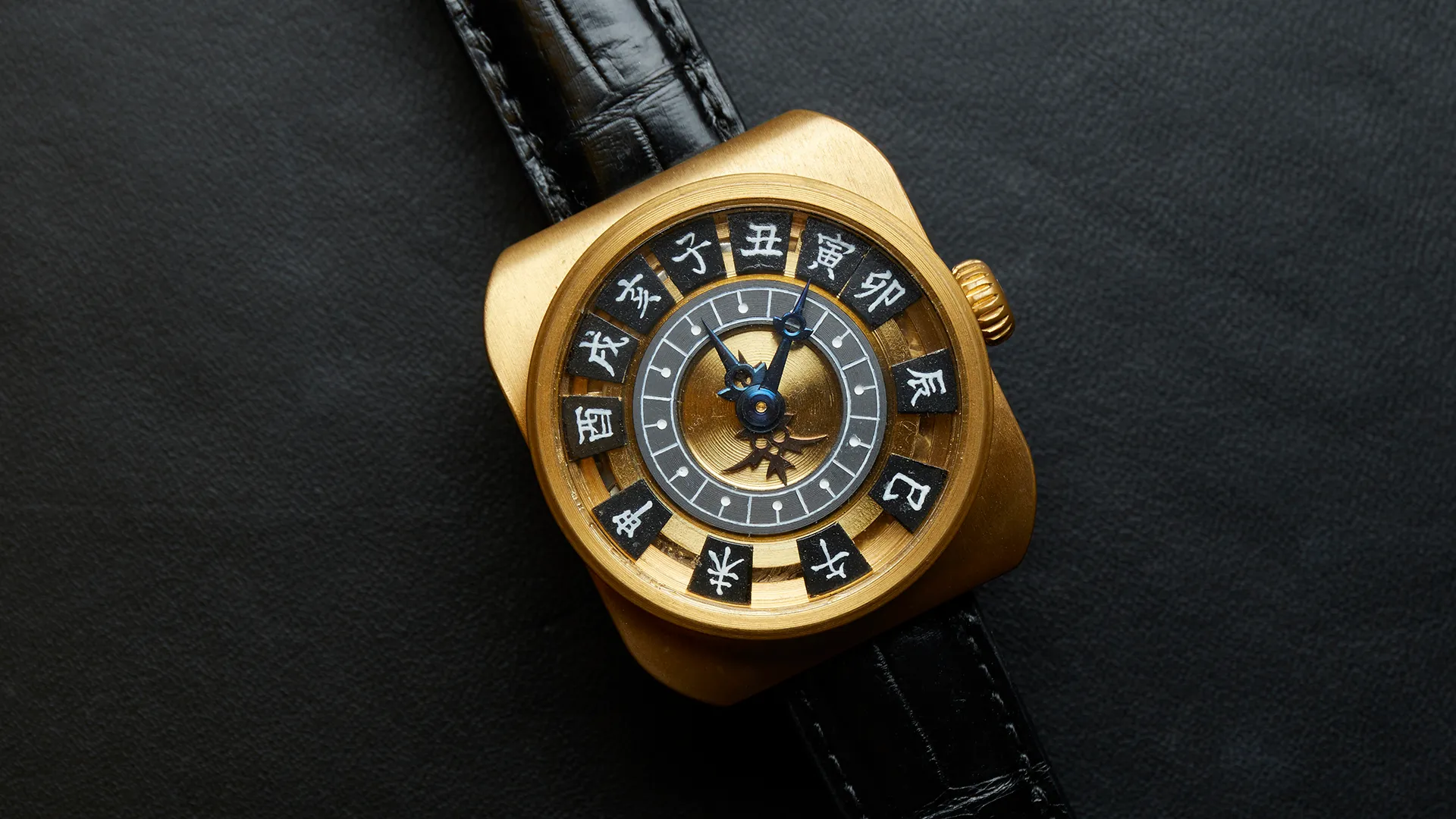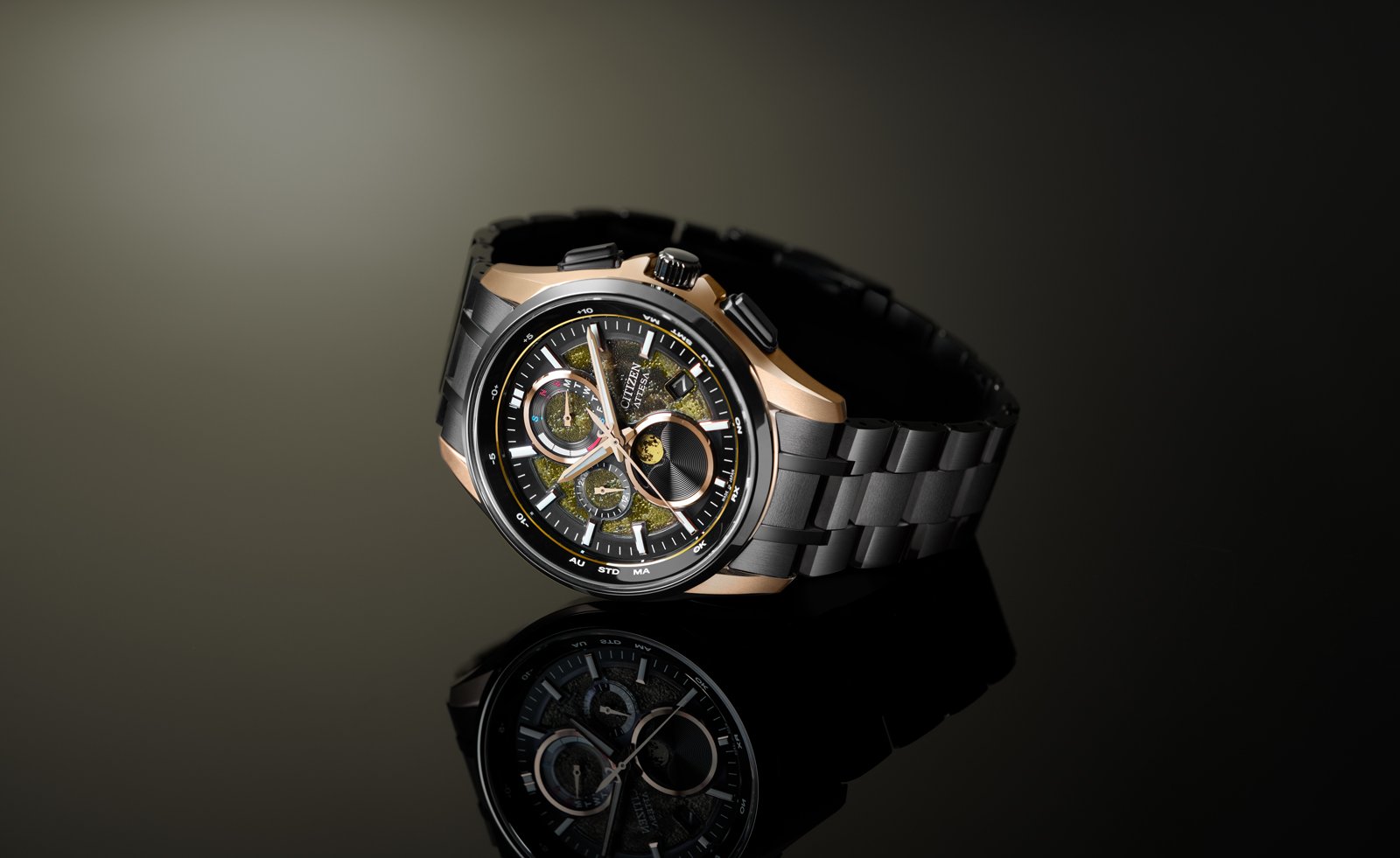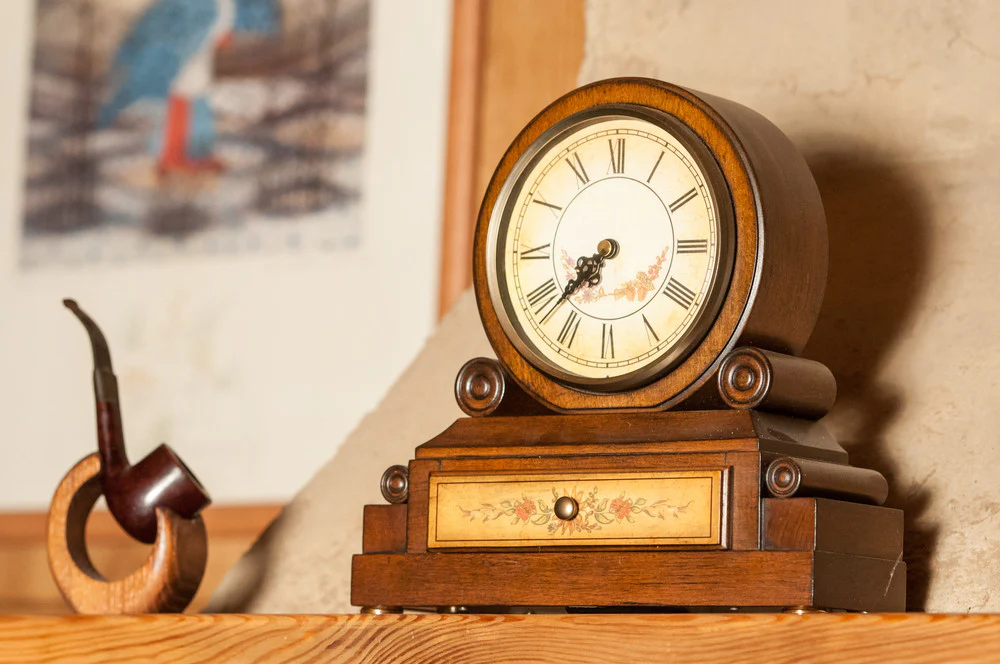Japan is home to some of the most renowned clock makers in the world, whose innovations and craftsmanship have left a lasting impact on the global horology industry. This article explores the legacies of popular Japanese clock makers, highlighting their contributions, achievements, and enduring influence.
Seiko: A Pioneer in Precision
Founding and Early Years
Established in 1881: Seiko, founded by Kintaro Hattori, began as a small watch shop in Tokyo. Over time, it evolved into one of the most influential clock and watch manufacturers in the world.
First Japanese Clock: In 1895, Seiko produced its first in-house clock, marking the beginning of its long history of innovation in timekeeping technology.
Innovations and Achievements
Quartz Revolution: Seiko made headlines in 1969 with the introduction of the world’s first quartz wristwatch, the Seiko Quartz Astron. This breakthrough revolutionized the watch industry by offering unprecedented accuracy.
Diverse Offerings: Seiko has expanded its product range to include a variety of clocks, from traditional wall and mantel clocks to modern digital and smart clocks. Its commitment to innovation and quality continues to define its legacy.
Lasting Impact
Global Influence: Seiko’s advancements in quartz technology and precision have set industry standards and influenced clockmaking practices worldwide. The company remains a leading name in both traditional and modern timekeeping.
Collectible Value: Seiko’s historical models, including the Quartz Astron and early mechanical clocks, are highly sought after by collectors for their technological significance and craftsmanship.
Citizen: Innovators in Technology
Founding and Development
Founded in 1918: Citizen was established in Tokyo with a vision to create high-quality, accessible timepieces. The company quickly gained recognition for its innovative approach to clockmaking.
First Citizen Clock: Citizen’s early clocks and watches focused on precision and durability, laying the groundwork for future technological advancements.
Technological Contributions
Eco-Drive Technology: Citizen introduced Eco-Drive technology in 1995, using light to power watches and eliminate the need for battery replacements. This environmentally friendly innovation has become a hallmark of Citizen’s commitment to sustainability.
Advanced Features: Citizen continues to push the boundaries with features such as atomic timekeeping and GPS synchronization. These advancements reflect the company’s dedication to combining technology with traditional craftsmanship.
Lasting Influence
Sustainable Innovation: Citizen’s Eco-Drive technology has set a standard for environmentally conscious manufacturing in the clock and watch industry. The company’s focus on integrating modern technology with classic designs continues to attract a global audience.
Collectors’ Interest: Citizen’s innovative models, particularly those featuring Eco-Drive and atomic timekeeping, are prized by collectors for their technological advancements and reliability.
Casio: The Digital Revolution
Origins and Growth
Founded in 1946: Casio, established by Tadao Kashio, initially focused on creating electronic calculators before expanding into the clock and watch industry.
First Digital Clocks: In the 1970s, Casio made waves with its introduction of digital clocks and watches. The company’s early digital timepieces set new standards for accuracy and functionality.
Key Innovations
G-Shock Series: Launched in 1983, the G-Shock series revolutionized the market with shock-resistant technology. These rugged, durable clocks and watches quickly became popular among active users and outdoor enthusiasts.
Smart Technology: Casio has continued to innovate with smart features, including Bluetooth connectivity and solar power. The company’s ability to blend digital technology with practical functionality remains a defining characteristic.
Enduring Legacy
Technological Leadership: Casio’s pioneering work in digital and smart technology has had a profound impact on the industry. The G-Shock series, in particular, has become a cultural icon and a symbol of durability and innovation.
Collector’s Appeal: Casio’s digital and G-Shock models are celebrated by collectors for their unique designs and technological advancements. The brand’s contributions to the evolution of digital timekeeping continue to be recognized and appreciated.

Other Notable Japanese Clock Makers
Kintaro Hattori (Seiko’s Founder)
Historical Significance: Kintaro Hattori’s early work laid the foundation for Seiko’s success and innovation. His commitment to quality and precision set a high standard for Japanese clockmaking.
Tissot Japan
Swiss-Japanese Collaboration: Tissot Japan, a branch of the Swiss watchmaker Tissot, has contributed to the Japanese clock industry by combining Swiss expertise with Japanese craftsmanship. Their timepieces are known for their precision and elegance.
Nakagawa Clock Co.
Traditional Craftsmanship: Nakagawa Clock Co. is known for producing high-quality traditional Japanese clocks with intricate designs. Their commitment to preserving traditional clockmaking techniques is a testament to Japan’s rich horological heritage.
Conclusion
Japanese clock makers have significantly influenced the global horology industry through their innovations, craftsmanship, and dedication to precision. From Seiko’s quartz revolution to Citizen’s Eco-Drive technology and Casio’s digital advancements, these companies have left a lasting legacy. Their contributions continue to shape the future of timekeeping, blending tradition with modern technology and inspiring collectors and enthusiasts around the world.





Lucky7even bietet eine umfangreiche Sammlung von über Spielautomaten von anerkannten Entwicklern. Bei einer zweiten Einzahlung von 30 € nach der Registrierung erhalten die Spieler einen 50%-Bonus und 40 Freispiele.
Spieler, die eine Ersteinzahlung von 30 €
oder mehr tätigen, erhalten einen 325%igen Bonus bis zu 500 € sowie 100 Freispiele. Lucky7even Casino bietet Smart Play-Tools, mit denen du deine Spielzeit, Ausgaben und Spielvorlieben im Blick behalten kannst.
Jeder neue Spieler im Lucky7even Casino wird mit einem fantastischen Willkommensbonus begrüßt, der sowohl Match-Boni als auch Freispiele beinhaltet. Mit Echtzeit-Dealern und einer sozialen Atmosphäre spielen Sie traditionelle Spiele wie Blackjack, Baccarat und Roulette mit einem echten Dealer ganz bequem von zu Hause aus. Für Spieler, die strategieorientierte Spiele bevorzugen, bieten wir eine große Auswahl an Tischspielen wie Blackjack, Roulette, Baccarat und Poker. Ob Sie den Nervenkitzel der Walzen bevorzugen, Ihre Strategien bei Tischspielen testen oder sich in Live-Casino-Erlebnisse vertiefen möchten – hier ist für jeden etwas dabei. Mit einer großen Auswahl an erstklassigen Spielen, fantastischen Aktionen und spielerorientierten Funktionen ist das Lucky7even Casino der Ort, an dem Spaß und Gewinne Hand in Hand gehen.
References:
https://online-spielhallen.de/500-casino-deutschland-ein-umfassender-uberblick-fur-spieler/
Wir fanden Casinoseiten mit verlockenden Spielautomaten, großzügigen Boni, sicheren Kassen, kompetentem Kundensupport und mobiler Kompatibilität.
Unsere Experten haben den Markt untersucht und nach umfassenden Plattformen gesucht.
Niederländische Spieler erfreuen sich seit Jahrzehnten an renommierten internationalen Online-Casinos, aber seit 2021 können sie sich auch im Inland lizenzierten Betreibern anschließen. Die Niederlande haben den Ruf,
liberal zu sein, und ihre Online-Glücksspiellandschaft spiegelt diese Einstellung wider.
Wer den Eingangsbereich hinter sich gelassen hat, kann sich auf zahlreiche
Spielautomaten in diesem geschichtsträchtige Grachtenhaus freuen. Für Erstbesucher ohne eine dieser Karten beträgt die Eintrittsgebühr 5 Euro.
Der Dresscode legt Wert auf Eleganz und wird besonders bei speziellen Veranstaltungen deutlich.
Near-me.casino ist nicht verantwortlich für falsche Informationen.
References:
https://online-spielhallen.de/joo-casino-freispiele-ihr-schlussel-zu-kostenlosem-spielspas/
The casino’s game selection for Australians is impressive, with
access to many of the most popular titles from
top-rated studios. For those chasing big wins, 24Casino runs three
exclusive jackpots, one of which can pay out over
A$2 million, in addition to several other progressive jackpot games.
While withdrawal times aren’t always as fast as with other Australian casinos, processing taking up
to 48 hours, Jeetcity’s customer support deserves high praises for its efficiency and courteous agents.
These ratings are not influenced by payments from casinos and reflect our genuine opinions
based on firsthand testing. Below is a snapshot of
our highest-rated Australian casinos for 2025, sorted by their overall performance.
These recommendations are based on our independent 13-step evaluation process, covering everything from reliability, game variety and RTP, and bonus value to customer support
and payout speed.
These packages give you more playtime, but I always
read the fine print to ensure wagering requirements are fair,
typically 30x to 40x for trusted AU casino reviews. I ask tough
questions about bonuses, withdrawals, or account verification to
gauge how knowledgeable and friendly the team is.
I test customer support at each casino, reaching out via live chat, email, and phone (if available).
I also check if the casino supports Australian dollars to avoid currency conversion hassles and deposit
fees. I used these methods at casinos such as Jet4Bet Casino and Win Maker Casino.
For instance, Fat Fruit Casino impressed me with its vibrant pokies and immersive live
blackjack tables.
Some AU casinos excel at one thing, and others excel at another.
We will tell you all that you need to know about top pokies, their RTPs (return to player), volatility, and features.
However, taking full advantage of the best casino sites in the market can be a tough task.
References:
https://blackcoin.co/areas-to-enjoy-responsible-exciting-and-safe-online-gambling/
Microsoft’s East Campus features buildings of 4-5 stories,
located around a central plaza that serves as the heart of
campus. The 1948 win over NYU was a victory over the eventual NIT runner-up,
in a time when the prestige of the NIT tournament rivaled that of the NCAA tournament.
The Fighting Irish have appeared in the National Invitation Tournament (NIT) 12 times.
They have also played in the NCAA tournament 36 times, good for 9th all
time, and reached the Final Four in 1978. The transit
center opened in 2002 and will be the eastern terminus of the East Link light rail extension, scheduled to open in 2023.
The campus is served by buses to Seattle and some Eastside cities at the Overlake Transit Center, operated by
Sound Transit and King County Metro. Microsoft also announced its intention to contain most its future growth
within Redmond, while retaining some offices in Downtown Bellevue and Factoria.
The campus was originally leased to Microsoft from the Teachers Insurance and Annuity Association, a pension fund manager, until it was bought back in 1992.
Microsoft chose to move its headquarters from Bellevue to nearby
Redmond in January 1985, selecting a 29-acre
(12 ha) plot of land that would be developed by Wright Runstad & Company.
Microsoft initially moved onto the grounds of the campus on February 26,
1986, weeks before the company went public
on March 13.
The Fighting Irish have appeared in the NCAA tournament
37 times. For employees, Microsoft also operates a commuter bus service
called “The Connector” that provides non-stop service to neighborhoods in Seattle, the
Eastside, and Snohomish County from the Redmond campus. The Seattle Times reported in early
September 2015 that Microsoft had hired architecture firm Skidmore, Owings
& Merrill to begin a multibillion-dollar redesign of the Redmond campus, using an additional 1.4 million square feet (130,000 m2) allowed by an agreement with the City of Redmond.
In January 2006, Microsoft announced the purchase of Safeco’s Redmond campus after
the company had begun consolidating its offices at the Safeco Tower in Seattle’s University District a year earlier.
References:
https://blackcoin.co/understanding-the-login-process-in-online-gambling/
Top studios deliver high-volatility thrillers, feature buys, and cluster mechanics alongside fan favorites.
With multi-currency convenience, King Billy Casino supports both fiat and leading cryptocurrencies for seamless,
verified banking. King Billy Casino Login & Sign Up Copyright ©
2024 kingbillycasino-au.com Our 10-tier VIP system rewards loyalty with cashback, coin exchange,
and tailored gifts.
Your VIP journey is supported by a dedicated team that monitors your progress and ensures you receive every benefit you’ve earned,
creating a personalized experience that makes you feel valued and appreciated.
Our 10-tier system begins with Citizen status and ascends to the prestigious King or Queen level, with each tier unlocking
new opportunities for enhanced gaming experiences. Our welcome package structure
is designed to maximize your initial gaming capital while encouraging exploration of our extensive game library.
This progressive structure encourages continued engagement while providing genuine value that enhances
your gaming experience. Each game category brings unique
features and mechanics that allow you to explore different gaming styles and
discover your personal preferences.
Providers like KA Gaming, Luckystreak, and ICONIC
21 ensure high-quality gameplay. With more than 5,000 games, you’ll never run out of choices.
The selection includes Megaways, Bonus Buy options, Accumulating pokies, Classic Pokies, and many other categories.
References:
https://blackcoin.co/welcome-to-paradise-8-casino-au-real-money-pokies-fast-payouts/
Licensed online casinos with instant payout methods are safe
and legal, as are their fast withdrawal counterparts. The best instant cashout online casinos work to prevent fraud and therefore don’t have to cover the cost of lost funds or pay fines.
You can play all of these games and more at the best
Neosurf casinos in Australia.
Free spins provide an excellent opportunity for
players to try out new games and increase their chances
of winning without additional financial risk.
These spins are typically applied to the best and newest online
slots and are often included in welcome packages, making them
an attractive bonus for new players. Free spins are another common promotion,
allowing players to try out the best and newest
online slots without risking their own money. Baccarat offers simple
yet engaging gameplay where players bet on either the player or the banker, aiming
for a total closer to nine. Players seeking to
maximize their chances of winning should prioritize casinos with higher RTP games.
Bonuses are a major draw for new players and a great way for casinos to reward loyal members.
When selecting an online casino, it’s essential to consider the types of promotions available.
Our top-ranked casinos offer a fun and safe experience.
This helps us make sure every platform we show is one of the top online casino Australia sites.
The mobile experience truly shines, making it the go-to for players who prefer
gaming on their phones. These are the best sites we’ve reviewed and rated for real money gaming Down Under.
online betting with paypal winnersbet
References:
https://etalent.zezobusiness.com/
mobile casino paypal
References:
https://www.cybersecurityhouse.com/employer/our-favorite-paypal-casinos-2025-ranking-update
paypal casino sites
References:
http://www.vk1bj3qdukp4i.com/bbs/board.php?bo_table=free&wr_id=9314
online roulette paypal
References:
https://gizemarket.com/companies/play-paypal-pokies/
mobile casino paypal
References:
http://ww.enhasusg.co.kr/bbs/board.php?bo_table=free&wr_id=3028356
casino mit paypal
References:
https://istihdam.efeler.bel.tr/employer/10-best-online-casinos-for-real-money-december-2025/
**mitolyn**
Mitolyn is a carefully developed, plant-based formula created to help support metabolic efficiency and encourage healthy, lasting weight management.